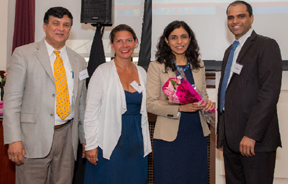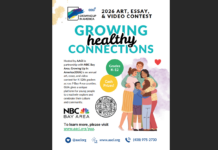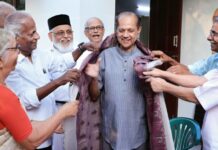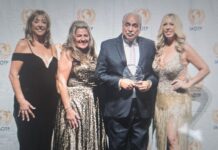
Boston A one-day Symposium on Integrative Medicine and the Role of Yoga and Ayurveda was convened by multiple organizations headed by the Indo-American Health Initiatives at the Gordon Hall of Harvard School of Medicine, Boston on Wednesday June 29.
Experts in the field of research, integrative practice of Yoga and Ayurveda discussed the current status, challenges and the future growth of Integrative medicine. The purpose of this symposium was to address the solutions to some of the key issues in current the healthcare system such as access, rising cost, standardization and quality control and incorporate an integrative approach by bringing the ancient systems of Ayurveda and Yoga into the conventional medicine via research and development, high level educational exchanges and entrepreneurial business partnerships.
Kanchan Banerjee, the Vice President of Global Indian Business Council and the Co-Convener of the Symposium, as a chair of the inaugural session described the initial objectives of the symposium and how the West can integrate these ancient practices into its healthcare system.In his welcome address Dr. Darshan H. Mehta, Medical Director of Benson-Henry Institute for Mind Body Medicine at Harvard Medical School, expressed his pleasant surprise over the intensive use of Yoga and Ayurveda in the practice of Western medicine.
Shripad Yasso Naik, Minister of State for Ayurveda, Yoga and Naturopathy, Unani, Siddha and Homoeopathy, (AYUSH), Government of India, in his video message, promised full support for the advancement of knowledge and practice of Ayurveda and Yoga in healthcare worldwide. He also said that this event would be a historic step forward for Integral Medicine.
This was followed by keynote addresses, firstly, by Dr. H R Nagendra, the Chancellor of Swami Vivekananda Yoga Anusandhana Samsthana (S-VYASA) University, Bangalore, who showed a list of significant scientific researches done in the past 30 years, and requested scientists and physicians from the United States to join hands with the Indian scientists and experts in the fields of Ayurveda and Yoga to demonstrate agreeably the hidden scientific approaches used in these ancient Indian practices.
Dr. Greg Fricchione, the Director of Benson-Henry Institute for Mind Body Medicine, suggested that stress management through yoga has been verified at the biology level. He also added that traditional sciences’ approaches and understanding of human dynamics in relation to energy and function is growing immensely. The session concluded with a presentation by the State Health Commissioner of Massachusetts Dr. Monica Bharel, who emphasized the use of Ayurveda and Yoga in the holistic healthcare system.
A session reviewing basic researches in Yoga and Ayurveda was chaired by Dr. Dinesh Patel, Associate Clinical Professor at Harvard Medical School and Ortho surgeon at Massachusetts General Hospital (MGH), said that access, quality, safety and affordability of Healthcare and welfare measures to millions should be the mission of health care professionals.
Several speakers spoke on various related subjects. Dr Manjunath S K, Director International Affairs & Director R&D, S-VYASA, Bangalore: Research and funding status on Ayurveda & Yoga in India and worldwide. Dr. Sara lazar, Assistant Professor, Harvard Medical School:Impact of Meditation on brain, body and mind. Dr. Richard Fletcher, Mobile Technology Group at MIT D-Lab: Mindfulness Research.
Dr. Robert Saper, Chair of the Academic Consortium of Integrative Medicine and Healthcare at Boston University, suggested that Ayurveda and Yoga will become popular when researches ensure their safe and effective uses.
Dr. Ariana Vora, Harvard Medical, Spaulding Rehab and Mass General Hospital (MGH), urged to have a continuous exchange and education between conventional medicine and traditional systems. The next session focused on the current works in these areas in terms of prevention and therapy. It was chaired by Dr. David Mischoulon, Psychiatrist from MGH. Several experts presented in this session. Dr. Lisa Conboy, Health Researcher, Osher Center for Integrative Medicine Brigham and Women’s Hospital: Clinical research on Ayurveda/Yoga. Dr. John Denninger, Director of Research, Benson-Henry Institute for Mind Body Medicine, MGH: Conceptual and procedural hurdles for the acceptability of Ayurveda and Yoga. Dr. Pratibha Shah, Ayurveda Expert, :Ayurveda in the US, realities and potential.
A panel discussion on, ‘Strategies and Steps for Advancing Ayurveda &Yoga in Healthcare’ was chaired by Dr. Bal Ram Singh, President, Institute of Advanced Sciences, Dartmouth, MA.
Various expert panelists shared their knowledge and experience with these ancient Indian practices. Dr. Bindiya Thakkar, Endocrinologist, Hallmark Health System: Nutrition and Community Health – Diabetes and Obesity. Dr. Sharmila Mudgal, Occupational Primary Care Orthopedics, & Parag Mehta,Co-Founder of Navitas International Corporation: Ayurveda 2016: Bedside to Bench to Bedside. Dr. Margrit Mikulis, Secretary, Board of Director of National Ayurvedic Medical Association (NAMA): Legal status, educational standards and practice of Ayurveda in United States – ways to move forward, and Prof. Satbir Khalsa, Harvard Medical School: Yoga in Healthcare – The Science and the Research Evidence.
Dr. Anusha Sehgal, faculty of Ayurvedic Health Education also talked about her integrative medicine approach and the importance of standardized Ayurvedic Education.In the Concluding session Jagat Guru Amrta Suryananda Maha Raja, the President of Yoga Portuguese Confederation from Portugal talked about how modern science is coming closer to the sciences of India. The Art of Living founder and Spiritual Guru Sri Sri Ravishankar sent his and said that it’s the right time to bring the benefits of Yoga and Ayurveda, which is the tested ancient health science to the millions of Western world.
He also added that we should look at Ayurveda and Yoga with modern scientific angles. Yoga is a proven best tool for the prevention of many illnesses and Ayurveda is a recognized medicine that helped millions to recover from various ailments. Pramit Maakoday, Co-Convener of the event gave the vote of thanks to distinguish faculty, visitors from overseas, sponsor: Vipul Amin of PARAM, a Health care company based in New Jersey, attendees and Harvard medical school for providing this wonderful opportunity and allowing this event to happen in Gordon Hall.
The event was organized by the Indo-American Health Initiatives based in Boston which plans to promote collaboration between the two countries in the Healthcare sector. Its primary goal is to take technology to India and bring Indian healing systems to the US. The supportive organizations included S-VYASA India; Institute of Advanced Sciences in Dartmouth MA.
Geetha Patil






